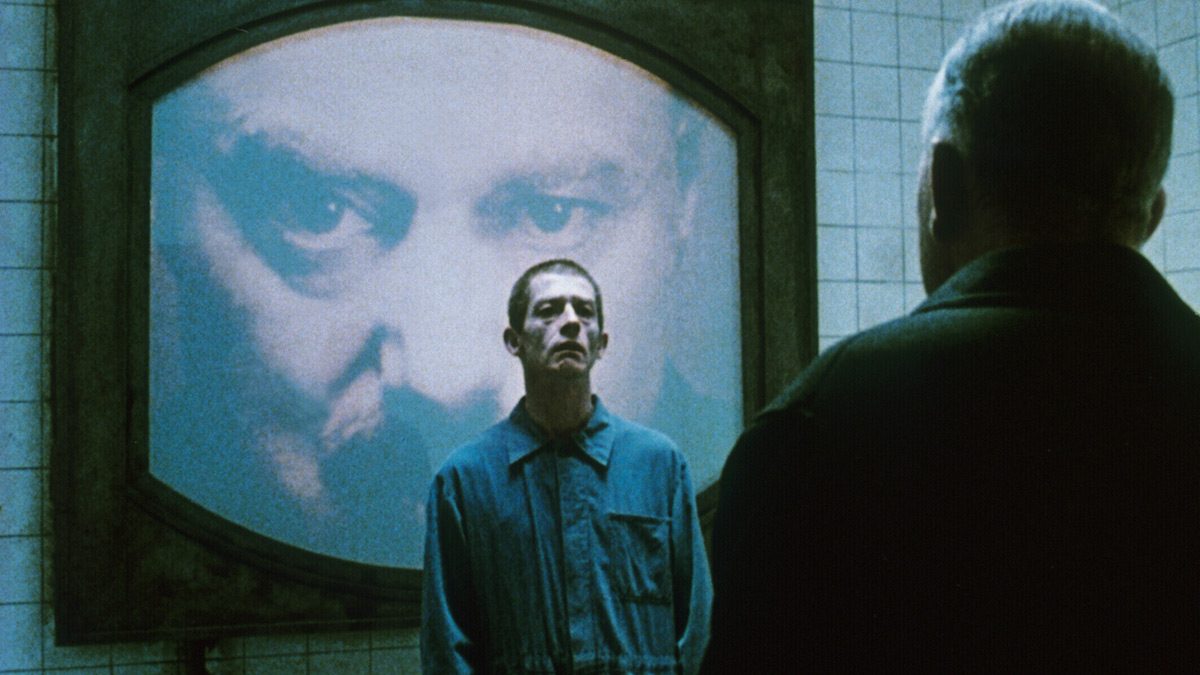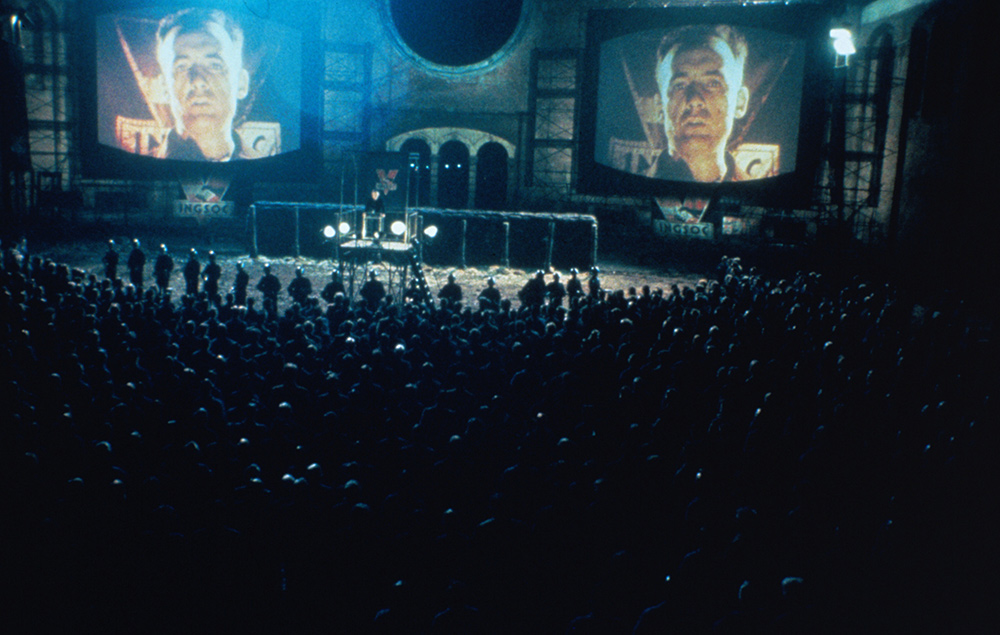
(c) Photofest / Getty Images
``1984'' Premonition and warning of totalitarianism, which is no longer a figment of imagination.
2022.04.04
Strong influence from the Soviet Union and the Nazis
Radford's ``1984'' is extremely faithful to the original work. It clearly depicts the future that Orwell might have seen in 1948. What unfolds on the silver screen is not a science fiction future of flashing colorful lights and high-tech manufacturing, but melancholy, bitterness, and suffering. Radford does not entertain this absurd future world with easy sensationalism, but consistently portrays it as a harsh environment under a totalitarian regime. At the root of this is a warning against totalitarian ideology.
The film adds salutes unique to Oceanian nations that were never depicted in the original. A similar gesture can be seen in ``Pink Floyd/The Wall'' (1982), in which the artist raises his arms and crosses his wrists in a small V-shape. This is a scene that is easily reminiscent of the Nazi salute, and leaves a strong impression of a totalitarian state.

『1984』(c)Photofest/Getty Images
Goldstein's Forbidden Books, which appear in the story, are said to be very similar to the book `` The Revolution Betrayed '' (published by Leon Trotsky in 1936), which critically analyzes Stalinism in the Soviet Union. Also, given that the soldiers of the Oceania National Army wear Soviet Red Army helmets (painted black), it is no exaggeration to say that most of the countries in Oceania are modeled after the Soviet Union.
Furthermore, the Thought Police in the film are said to be modeled after the Soviet secret police, the NKVD (People's Commissariat for Internal Affairs). The Thought Police in ``1984'' is an organization that routinely monitors people who hold anti-establishment ideas using interactive television (called telescreens in the story) and arrests them if necessary. Criminals based on such ideas were called "thought criminals." The Soviet Union's NKVD, which was active from 1934 to 1946, also indiscriminately arrested people with anti-Soviet ideas. It is also said that the motif of the Thought Police is a quote from Japan's wartime secret police, the Tokko High School, which arrested people for their anti-national beliefs.
In this way, Orwell's novel and the film ``1984'' are not the terrifying future world that Orwell predicted, but rather a transcript of a post-war society that had become extremely chaotic due to totalitarianism. However, ``1984'' is no longer a figment of imagination today. Big Brother is still alive and well and is now lurking in various countries around the world.
Text: Hayato Otsuki
Born in May 1993 in Sapporo, Hokkaido. Writer, editor. He started his writing career in 2016 and currently contributes columns, movie reviews, etc. to various media. By reading the creator's Arrival from a bird's-eye view, we incisively analyze and explain the original intention of the work. His writing publications include "THE RIVER", "IGN Japan", and "Real Sound Movie Club". My specialty is action and fantasy.
(c) Photofest / Getty Images

